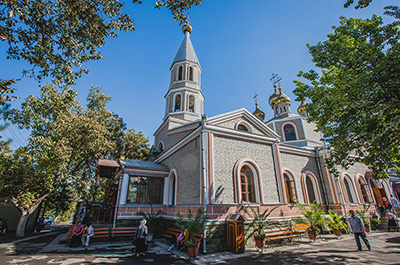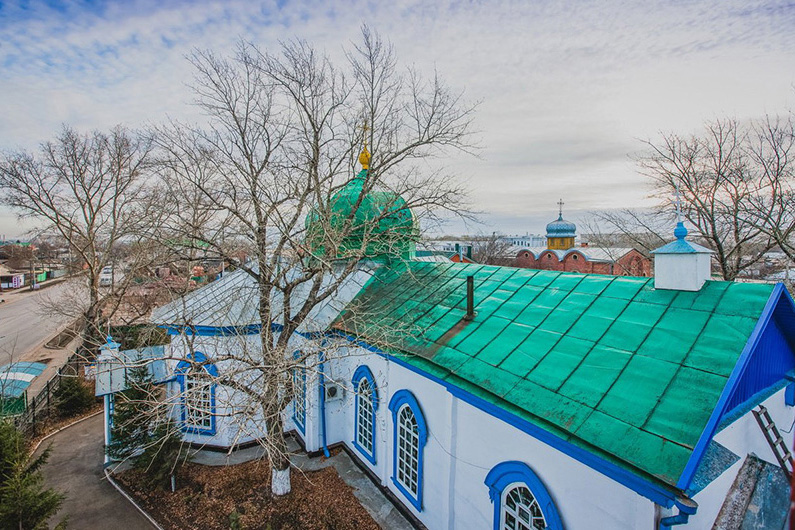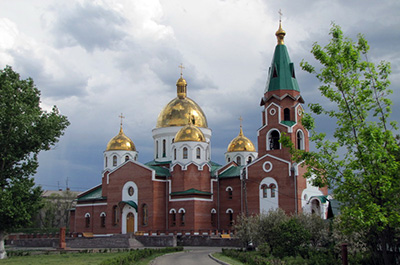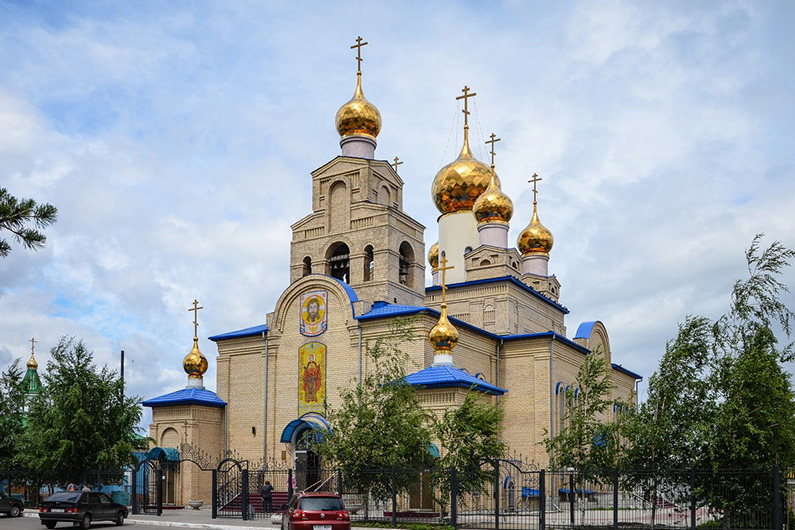
Ecumenical parental Saturday (meat-free)
- 09.03.2024, 17:50
- Новости на английском языке

March 9, 2024 – Ecumenical Parents’ Saturday (meat-free Saturday).
The Holy Church, devoting the final preparatory week before Lent to a reminder of the Last Last Judgment of Christ, established to intercede on this Saturday for everyone “who have died from time immemorial, who have lived in piety, of all generations, ranks and conditions,” especially for those who died a sudden death. The synaxar (statutory teaching) of the meat-free parental Saturday says: “the holy fathers, moved by love for mankind, established, based on the apostolic teaching, to perform this general, universal commemoration, so that no one, no matter when, where and how he ends his earthly life, did not lose the prayers of the Church.”
Metropolitan Alexander of Astana and Kazakhstan performed the statutory commemoration of the deceased.
In the church in the name of the holy martyrs Vera, Nadezhda, Lyubov and Sophia at the Patriarchal Metochion of the city of Moscow - the Representation of the Kazakhstan Metropolitan District, the Divine Liturgy was celebrated, at the end of which a memorial service was held for all “from century to day deceased Orthodox Christians.”
At the funeral service, all “Orthodox Christians who have passed away from this century to this day” were remembered; special prayers were offered for the late rector of the St. Sophia Church, Archpriest Boris Prisyazhnyuk, through whose efforts the parish was revived, and for the ever-memorable builders and beautifiers of the temple; about deceased Kazakh hierarchs and clergy; about those buried at the Miussky cemetery of the capital, among whom is A.F. Vedernikov, People's Artist of the USSR - “Golden Bass of Russia”; about all those who were innocently tortured and killed during the years of godless persecution, who died from hunger, cold, wounds, illnesses and hard work; about the leaders and warriors who laid down their lives on the battlefield for their faith and Fatherland.
“The Church has great power, extraordinary power, given to it by God, to change the fate of its dead children. We bring notes to the church with names dear to our hearts, fervently pray for the forgiveness of voluntary and involuntary sins of “relatives and neighbors who lived and died before us,” we serve prosphora, from which particles are taken out at the very beginning of the Liturgy, during the Proskomedia on the holy altar. And during the Divine service, a very important, spiritually significant moment comes - all these particles are immersed in the chalice with the Most Pure and Life-Giving Blood of the Lord Jesus Christ. At the same time, the prayer is said: “Lord, wash away the sins of all those here remembered by Your Honest Blood through the prayers of your saints.” Saint John Chrysostom testifies to this sacred rite: “It was not in vain that the Holy Apostles established the custom of remembering our loved ones who died in the Lord during the Sacrament of the Holy Eucharist. The holy apostles instituted this because they knew that these prayers bring many profits and many benefits to the dead.” Our relatives, close friends and famous people, whose names are written in memorial notes, receive grace, sanctification and remission of sins from the bloodless Sacrifice offered on the Throne. Those righteous people to whom, by special Divine providence, the secrets of the afterlife were revealed, testify that the greatest consolation and indescribable joy are granted to the souls of the departed when church prayer is poured out for them and the Bloodless Sacrifice of the Holy Eucharist is offered.” From the sermon of Metropolitan Alexander.





















